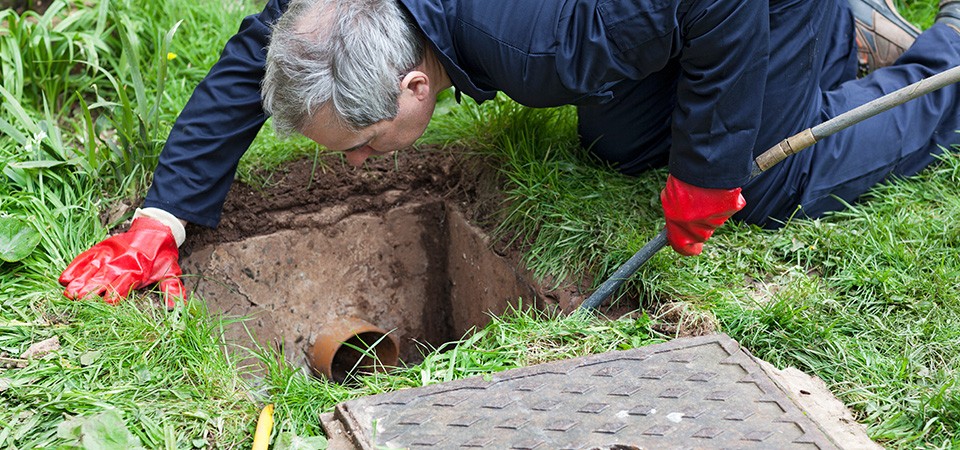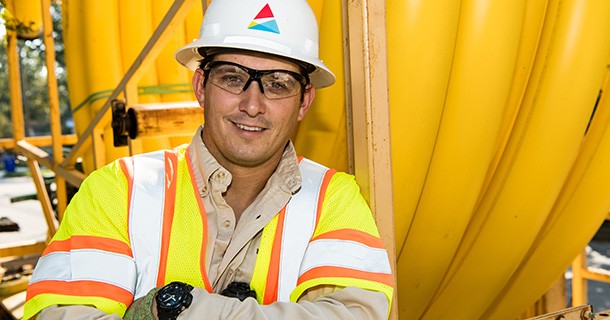Removing Sewer Blockage Safely

If your sewer line backs up, we recommend hiring a professional drain cleaning (“rooter”) company or sewer contractor. You are required to call 811 before doing any digging to repair the blockage. Even if you will not be digging, the safest method of clearing the blockage, if it is out in the yard, is to first have all underground facilities on your property located by calling 811. If it is determined that underground natural gas pipes intersect with your sewer line, the drain cleaning company should use a camera to visually inspect the blocked line to ensure no gas pipes, cables, or conduit exist within the sewer line.
While it is common practice to use a mechanical rotary device to root out the blockage, doing so without locating utility facilities or without a visual camera inspection of the sewer line is discouraged and could be dangerous. If a gas pipe has been bored through the sewer line, it could be damaged, resulting in a loss of service and a potentially hazardous leak condition. If a natural gas pipe is found in your sewer line, stop all work immediately and call Virginia Natural Gas at 877.572.3342 and report it as a natural gas emergency. Be sure to let the customer service representative know that you have discovered a cross bore. We will take the appropriate steps to remove the gas line and make the area safe.
Know the Signs of a Gas Leak - Sight, Sound, and Smell
During the cleaning of your sewer lines or whenever excavation activities take place on your property, you need to know the signs of a natural gas leak:
LOOK for blowing dirt, discolored vegetation or continued bubbling in standing water.
LISTEN for a hissing or roaring noise near a natural gas appliance or line.
SMELL for the distinctive, rotten-egg odor associated with natural gas. Natural gas is colorless and odorless, so we add a chemical odorant called mercaptan for easy detection. This odorant has a distinctive “rotten egg” type odor. You should act any time you detect even a small amount of this odor in the air.
If you believe you have damaged a gas pipe in a sewer line by pulling, nicking, or breaking it:
- LEAVE the area immediately and move a safe distance away from the potential leak, while avoiding any action that may cause sparks. Do not try to identify the source or to stop the leak yourself.
- AVOID using any sources of ignition, such as cell phones, cigarettes, matches, flashlights, electronic devices, motorized vehicles, light switches or landlines, as natural gas can ignite from a spark, possibly causing a fire or explosion. Natural gas is non-toxic, lighter than air and displaces oxygen. In severe cases, if not used properly, natural gas can also lead to asphyxiation.
- CALL 911 once you are out of the area of the suspected leak and in a safe place. Then call Virginia Natural Gas at 877.572.3342. Stay away until emergency personnel indicate it is safe to return.
Note: Do not solely rely on sense of smell. Be aware that some individuals may not be able to detect the odorant because they have a diminished sense of smell, olfactory fatigue or because the odor is being masked by other odors in the area. Certain conditions may cause the odorant to diminish so that it is not detectable. Some gas lines, due to their unique function, may not have odor at all.



